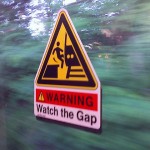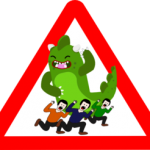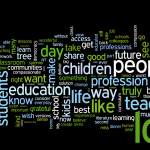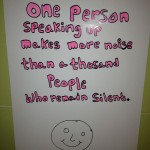Sandy wrote a great post offering some push-back about the statement teachers make that “your experience as a student doesn’t make you an expert on teaching and learning.” It was the kind of post I needed to read, because I am too quick to dismiss the knowledge that folks outside of education can offer.
And yet . . .
While I agree that it’s important to seek out advice from parents and to listen to the collective experiences of the public, I still believe it requires training and experience as a teacher (a real teacher and not someone trained in Harvard’s education department followed by years crafting policy in a vacuum) to be an expert on education.
Here are a few reasons it’s dangerous to take one’s experience as a student and use it to claim expertise:
1. The context makes a difference. Schools are often vastly different in climate, culture and instruction. It’s not necessarily an issue of time period so much as location. Using one’s own past experiences (as a teacher, student, etc.) is always dangerous. Not wrong, per se, but inherently myopic. When we see things only through the lens of our past experience, we start assuming that what worked (or didn’t work) for us are universal. We take personal experience and make it normative across all systems. As Sandy points out, teachers can fall victim to this as well. That’s why we need to call each other out when it happens.
2. Teachers are experts on pedagogy. We are professionals who have spent years studying the theory of this profession. Often, when I hear parents speaking out (whether it’s Common Core or “new math” or abandoning homework) it comes from a place of pedagogical ignorance. I welcome parents’ voices in teaching and learning, but not as an equal partner. They can help inform our practices, but they should not be driving what we do. Their voices are not as informed as teacher voices, because they lack the actual experience of teaching and the professional knowledge that comes with it. I drive a car, but I won’t tell my mechanic what to do. I’ve been to hospitals and watched movies with doctors, but I won’t tell a surgeon how to operate. Professional expertise matters.
3. Teachers understand the larger implications of policy: They see why certain things that sound like great ideas simply don’t work. They experience, on a regular basis, the hidden aspects of the job. Whether it’s IEP meetings or discipline or lesson planning or assessment, they see the practical implications of these policies. Often, when people reference their experiences as students, they are only getting a sliver of the educational system. They rarely stop and ask what types of policies were put into place along the way and whether or not these policies have changed.
4. Teachers are part of a larger community of other teachers. They have spent hours in deep conversation about things that most of the public rarely speaks about. They’ve had huge paradigm shifts to break some of the cultural stereotypes that exist about education. This often leads to a more nuanced position for those who are asking hard questions. By contrast, the Dunning-Kruger Effect demonstrates that people with less experience and less knowledge are most likely convinced that they have the right answers.
5. Teachers have spent more time in the classroom focussed on education rather than just content. I think this is a distinction people miss. It’s not just years of experience, but also the mental process that matters. In many cases, the teachers who have the greatest level of expertise have gained that expertise through rich conversations and hours of introspection. There’s a certain level of intentionality that they experience – a sort-of driving focus, a mission, a sense of responsibility for what happens – that are less common with parents or students.
The end result is that that the teachers who are the greatest experts are often the most humble about what they know. They have a deep, powerful contextual knowledge coupled with wisdom and with a theoretical foundation. However, they also know what they don’t know and this can come across as being weak or overly meek. In these cases, teachers are slow to say, “I’m an expert,” because it sounds arrogant.
For what it’s worth, I welcome public input on education. I want to forge partnerships with parents. However, not all opinions are equal. Teachers ultimately have the greatest level of expertise, because of our professional experience. Collectively, we are way to slow to say, “No, actually, we get this. We understand what is best.” It’s not arrogance. It’s the expertise that we’ve attained through hard work and deep thinking.
We’re the experts. We need to own it.









Comments 3
John,
This is exactly the kind of thinking that is missing when people stop the discussion with the cliche! The way you high-lighted the distinction between input and decision and clarified how teacher expertise is invaluable.
Like you say, all opinions are NOT equal.
I’m glad you liked the points, Sandy. I was afraid it was coming off as too critical of what you had written.
Really great points about the role distinction between teachers (as the pedagogical experts) and others (as valuable input). I agree that all opinions are not equal, but all opinions are valuable in the dialogue. Sadly, I think that teachers get so beat up by the myths/lies/distortions in the media that we fall victim to the opinions of others instead of being champions about what is best for kids.